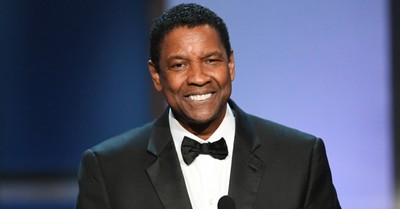A Christian Voter’s Guide to Choosing between Moral Rights and Political Wrongs
The Democratic National Convention meeting in Chicago continues to dominate the news cycle this morning. Bill Clinton, Pete Buttigieg, and Tim Walz were the highlighted speakers, while Oprah Winfrey gave a surprise speech, and Stevie Wonder, John Legend, and other celebrities appeared as well.
As the November 5 election draws ever closer, voters will obviously need to choose between the parties and their candidates. However, we will also choose between two electoral philosophies. Understanding them can help us frame the partisan vitriol of our day in a way that encourages our souls and empowers our witness.
Political “Rights” and Moral Wrongs
One approach is to vote for candidates we believe will best serve our nation, irrespective of our personal needs and wishes. However, Americans obviously disagree as to what is best for America. For example, as an evangelical Christian, I support biblical morality with regard to abortion, euthanasia, and LGBTQ issues. Many in our nation clearly disagree with me.
A second approach is to vote for candidates we believe will most benefit us personally—those who promise to lower our taxes, raise our income, protect our rights, solve our problems, and so on. However, what benefits us may not benefit others. Raising your taxes to provide more governmental services for me is better for me than for you. Lowering my taxes may hamstring the government’s ability to provide such services to you.
And what some consider to be “rights,” others consider to be moral wrongs. For example, employing governmental means to advance elective abortion or LGBTQ agendas using my taxes for purposes with which I strongly disagree.
All this to say, the outcome of our election this fall will inevitably disappoint us. Even if the leaders we elect never fall into personal immorality, never lie to us, and never make decisions based on personal agendas rather than the common good, they will inevitably lead in ways with which some of us disagree. This is simply the way democracy in a pluralistic society works.
How should you and I respond to this fact?
An Election Is Not a Coronation
We are to pay our taxes and respect those in authority—by virtue of their position, if not their person (Romans 13:7). Some of us are called to run for public office as well.
And we are to pray for our leaders, whether we voted for them or not (1 Timothy 2:12). As Dr. Mark Turman and Kaitlyn Schiess discussed on a recent Denison Forum Podcast, praying for our leaders reminds us not to idolize them and helps us fight against the temptation to confuse our president for our King.
The former is as finite and fallen, as prone to sin and failure as the rest of us. The latter is “the King of the ages, immortal, invisible, the only God” (1 Timothy 1:17).
As my wife notes in her latest blog, an election is not a coronation.
David testified, “Some trust in chariots and some in horses, but we trust in the name of the Lᴏʀᴅ our God” (Psalm 20:7). This was his personal commitment as well: “The king trusts in the Lᴏʀᴅ” (Psalm 21:7).
His example invites us to do the same today.
The key to helping our divided and divisive nation know the hope and grace of Christ is for us to experience and then model that hope and grace personally. Br. David Vryhof of the Society of St. John the Evangelist in Boston asks:
Why would we choose to love our enemies and do good to those who hate us? Because that is the way of God. That is how God responds to those who resist God and choose evil over good. God never stops loving, never stops caring, never stops blessing—even when the creatures whom God has made respond to this love with indifference or opposition…
Only God’s love abiding in us can love in this way. Only God’s strength at work in our weakness can make us God-like in our words and actions…
Love as God loves, give as God gives, be merciful as God is merciful, surprise people by your generosity and kindness—and everyone will know that you are “children of the Most High.”
His wise words apply especially to the way we engage the political issues of our day amid the deepest partisan divisions since the Civil War. When we “surprise people by [our] generosity and kindness,” we serve a cause that will endure long after the election is over.
“Victory, Sir! Victory!”
The Duke of Wellington’s defeat of Napoleon at Waterloo on June 18, 1815, ended a war that had waged for twenty-three years, stopped French attempts to dominate Europe, and helped advance the British Empire. However, historian Brian Cathcart reports that no one in London had any idea on that Sunday that the battle had commenced, much less that it had been won.
Monday’s papers carried reports that fighting had begun in Belgium. Tuesday brought news of victory, but the report mistakenly distorted an indecisive encounter two days before Waterloo, plunging the city into confusion.
It was not until Wednesday evening that messenger Major Henry Percy was able to bring the news to the governmental Cabinet. He then rushed to the Prince, dropped to one knee, and pronounced the words “Victory, Sir! Victory!” And all of England celebrated.
You carry news of the greatest victory since time began: the triumph of Jesus over sin, death, and the grave. Ten thousand millennia after the last election in human history is over, he will still be “King of kings and Lord of lords” (Revelation 19:16).
When last did you thank him for this victory?
With whom will you share it today?
Quote for the Day:
“The church is not meant to call men and women out of the world into a safe religious enclave but to call them out in order to send them back as agents of God’s kingship.” —Lesslie Newbigin
Photo Courtesy: ©Getty Images/Chip Somodevilla/Staff
Published Date: August 22, 2024
Jim Denison, PhD, is a cultural theologian and the founder and CEO of Denison Ministries. Denison Ministries includes DenisonForum.org, First15.org, ChristianParenting.org, and FoundationsWithJanet.org. Jim speaks biblically into significant cultural issues at Denison Forum. He is the chief author of The Daily Article and has written more than 30 books, including The Coming Tsunami, the Biblical Insight to Tough Questions series, and The Fifth Great Awakening.
The views expressed in this commentary do not necessarily reflect those of CrosswalkHeadlines.
For more from the Denison Forum, please visit www.denisonforum.org.
The Daily Article Podcast is Here!

















